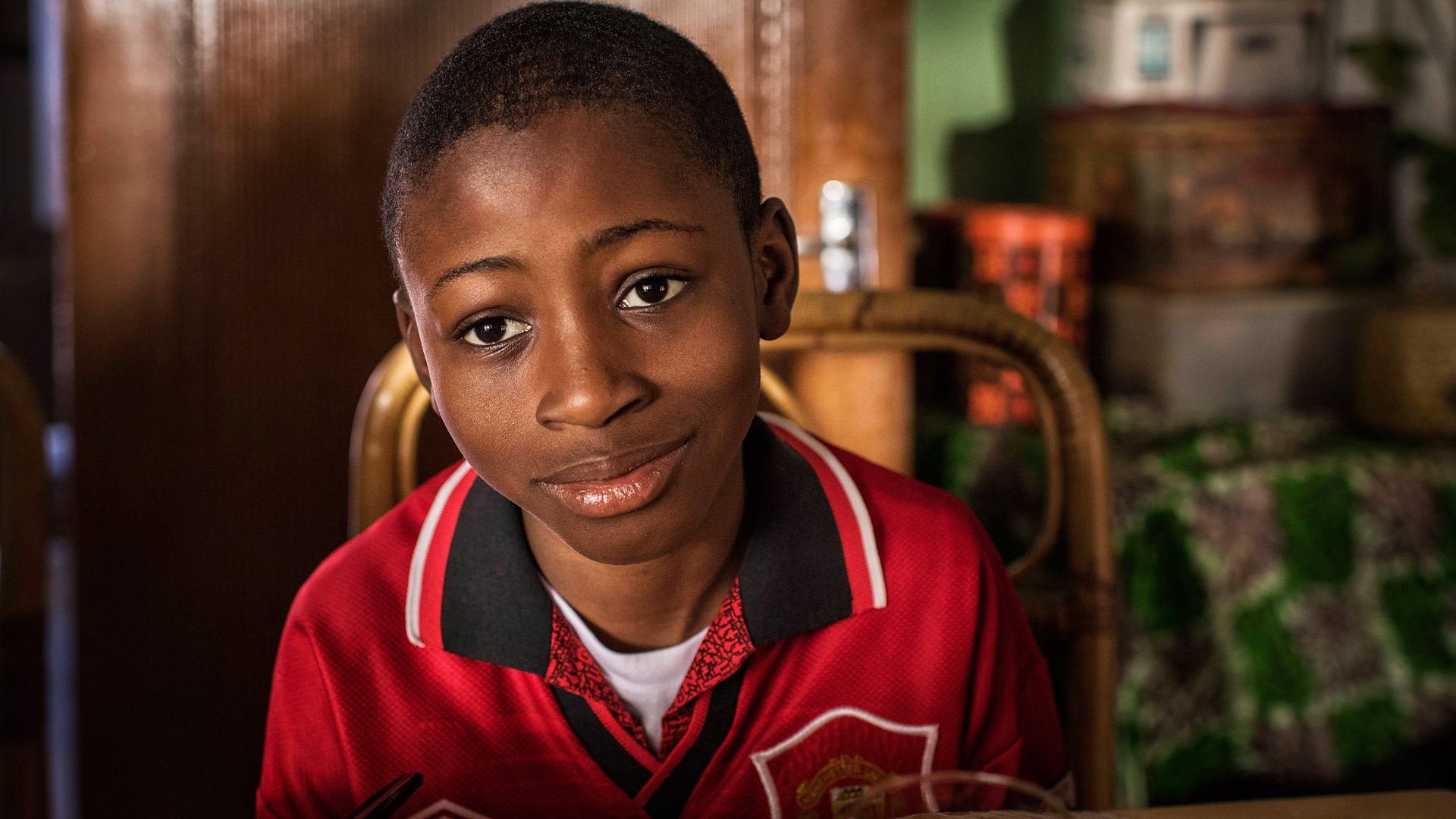Damilola’s unwavering love for the UK and life itself brings a smile to everyone’s face. His energy and humour captivate both students and teachers alike. The family begins to settle in and within his first school day he makes friends. The eldest brother, Tunde, focuses on taking care of his little brother as well as his studies while Gbemi seems to be getting better. Everything appears to be going well for the family until one day when Damilola leaves for school but never returns. The ten-year-old was found bleeding from a stab wound in a stairwell on the 27th of November 2000. Playwright Levi David Addi tactfully excludes scenes of the incident, instead focusing on Tunde’s heartbreaking call to his father from the hospital.
Damilola’s case shocked the nation; in part because of his innocence, as the young boy aspired to become a football player and doctor, but also due to the investigation having lasted six years. After three trials, brothers Danny and Ricky Preddie, both around 13 years old at the time of the crime, were convicted of the manslaughter of Damilola Taylor. The two had previously been involved in multiples robberies and were well known to the police. They were sentenced to eight years in youth custody on the 9th of October 2006.
The story could have easily been shot in an NCIS like manner depicting armed police men busting through doors and close-ups of finger prints determining who the culprit is, however, Addi focuses on the family’s struggle behind the public eye. The drama highlights how the family was affected by the death and gives little to no mention of the killers. After Richard immediately flies in from Nigeria, the household begins to crumble as the father’s pain and grief cause him to place the blame on family members, the police, and the government. As the family is broken apart, each can’t help but wonder if they had a part in the wrongdoing. Gloria questions whether she is to blame for having bought Damilola a bright silver coat, making him more of a target, Tunde feels responsible for not having picked his brother up after school and even Richard, a proud disciplinarian, eventually breaks down towards the end of the film, confessing he blames himself every day.
Richard’s fight for justice drives him to neglect the family, putting all his time and effort into the Damilola Taylor Trust – a charity set up in the name of his son aimed at ameliorating the life of disadvantaged inner-city youths. Tunde moves out after numerous fights with Richard to focus on his degree. The family is fully reunited 5 years later, at Tunde’s graduation. In the touching scene Richard admits to having missed and undervalued his other son. The family becomes whole again as they face the final trial to Damilola’s injustice.
Despite the film not being a classic documentary depicting all the unfortunate facts of youth crime, it shines a light on the consequences such events have, consequences which are not usually shown in the media. Richard Taylor expressed that he wishes for criminals to see the damage caused by their actions. Although there was nothing the family could have done to prevent the murder, Damilola, Our Loved Boy reveals the heart-breaking inner struggle families go through in order to heal. The story may be 16 years old but the closing caption “Since Damilola’s death, 204 teenagers in London have died as victims of knife crime” reminds us that the themes discussed continue to be relevant despite people like Richard Taylor doing their best to help the cause.
The fight against youth crime continues to this day but the drama gives us a message of hope. Even after the heartbreaking death of Damilola, there appears to be a silver lining: Richard’s charity continues to inspire and aid teenagers in creating a bright future for themselves, away from street violence.
Irina Roman
(Image: BT TV online)

